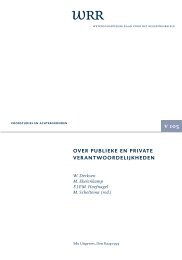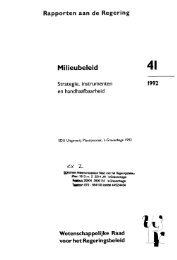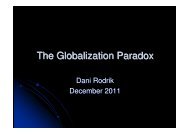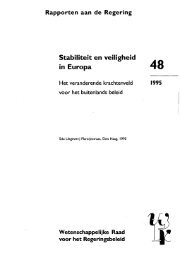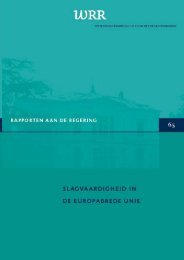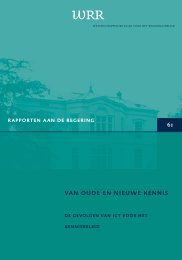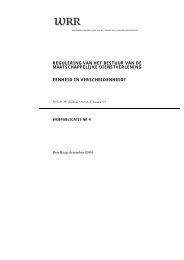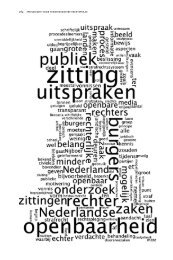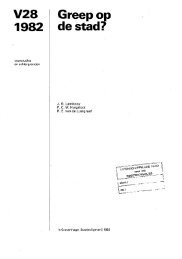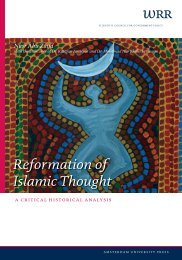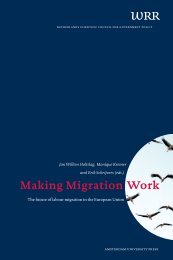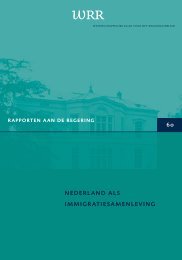De overheid als keuzearchitect? - Wetenschappelijke Raad voor het ...
De overheid als keuzearchitect? - Wetenschappelijke Raad voor het ...
De overheid als keuzearchitect? - Wetenschappelijke Raad voor het ...
Create successful ePaper yourself
Turn your PDF publications into a flip-book with our unique Google optimized e-Paper software.
de ov er heid a l s k eu z e a rchi t ec t<br />
known as 41k plans. The employee has to join the plan and decide<br />
how much to save and how to invest the money. Some employees never<br />
get around to joining. Now a simple solution to that is to change<br />
the default. So under the usual regime when you are first eligible to<br />
join the plan, you get a big pile of forms to fill out and if you do not<br />
fill them out you are not in. What some firms have done is switch to<br />
automatic enrollment. You get that first pile of forms, but the first<br />
page <strong>als</strong>o says: if you do not fill this out we are going to enroll you at<br />
this savings level and this investment plan. Now this greatly speeds<br />
enrollment, but there is a downside: whatever the default options<br />
are, specifically the savings rate and the investment vehicle, those get<br />
sticky.<br />
14<br />
I am going to talk about a solution to that in a minute. Let me give you<br />
another example with respect to organ donations. In many countries,<br />
including the us and the Netherlands, if you want to make your organs<br />
available if you should die, you have to do something, sign some<br />
form. Countries are varied in how difficult it is to find that form and<br />
turn it in. Some European countries have adopted what is called ‘presumed<br />
consent.’ This flips the default. You are assumed to give your<br />
consent unless you opt out. Spain is the world’s leader in producing<br />
organs that are available for donation and one of the methods they use<br />
is presumed consent. That has some appeal, although some people<br />
object to this politically. I actually favor a third option, neither opt in<br />
nor opt out, but what I call ‘mandated choice’. It is actually the system<br />
we use in Illinois, where I live. The way it works in Illinois is that<br />
every few years you have to get your drivers’ license renewed and get<br />
your picture taken. When you do this, they ask you: do you want to<br />
be a donor yes or no? You must answer that question to get your drivers’<br />
license. So you can say no. You are free to say no, but you can’t<br />
just say: huhhhhh, I don’t know. This has increased the proportion<br />
of people who agree to give their organs to 68 per cent. Nationwide<br />
in the us it’s 38 per cent. This costs nothing. I wrote a column about<br />
this in the New York Times a couple months ago and I mentioned that<br />
Steve Jobs had recently received the liver transplant. I suggested that<br />
our goal should be to make it as easy to sign up to donate your organs<br />
as it is to download an app on an iPhone. I nudged Steve Jobs to make<br />
an app available on the iPhone for the people to sign up. Jobs didn’t



